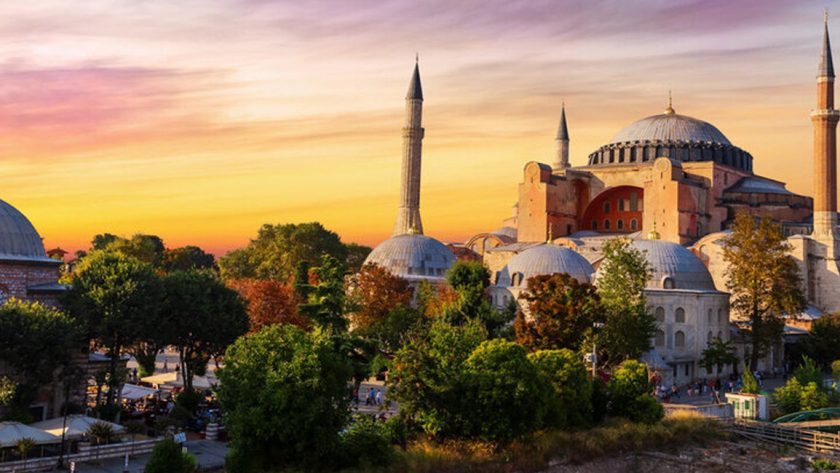The smell of cheap tobacco, olives, bloody meat, nutty leaves, cooked garbanzo beans and coffee suffocate the enclosed old city of Jerusalem. Hairy men and young shirtless boys call out, “My friend…you buy…make you good price…one shekel…which country?” Timeless old women sit on the cobble-stone streets selling leaves as young skinny kids ride tractors through the maze of vendors, American tourists, Uzi-clad Israeli teens, and Muslim men drinking mint tea. Sweat drips into my left eye as I weave towards the hostel.
This is my eighth day in Israel. The first week spent missioning through the north for strawberry vodka, drum circles, ass-kicking hikes and some enlightenment left me feeling like I could have stayed in Holland, or better yet returned to the States. Israel, with its postmodern ultra-flat future cities filled with Staples, Burger King, and Hertz, evokes none of the foreignness that I yearn for in other cultures. Frustrated, I decide to cut my time in Israel a week short. In three days, Loesje and I plan to travel south to Egypt. First though, we go to Jerusalem.
I’ve been traveling for just over two months through Italy, France and Holland, but my goal is to find a way to get to Jerusalem. I want to purchase that secret smile on the faces of the people I love who have either been or lived here. I fancy myself a Jew. Or at least the quasi American version who attends temple on the high holidays in a Pick Wick banquet hall with an ear pierced cantor and a rabbi who is so old it looks like he took notes for Moses on top of Sinai. But as a child, no matter how much I fasted on Yom Kippur, nor how many hours I put into my haftorah (hours of writing the English phonics beneath the Hebrew), I still questioned the four tenants of Passover. Judaism, more foreign than India, was a part of me that I simply couldn’t identify with.
We deposit our bags at the Tabasco Youth Hostel. Free to get lost in the Life of Brian set, Loesje and I, both former camp counselors (we met at a theater camp in Wisconsin three years prior), set out to get lost in the maze of Old Jerusalem. It is a world apart from the bleached, arid, and nondescript cities we’ve been to. Stone and culture and chaos crammed between walls of politics and religion and history. Here is the Israel I’m looking for.
Thirsty, hot, and on a mission for water and halvah, we see a crowd of kids throwing stones in the middle of the street. Brawny Loesje pushes her way through the malnourished children to find an even more malnourished kitten looking up to heaven with large copper eyes. She gives them a look that dares them to continue and the wretched kids back off giving me room to loose my heart. Almost as small as a mouse, and shaking like we are in Alaska rather than the desert, the kitten’s mewling pleads ‘help me’. Its dreadlocked fur and partial tail do nothing to hide the fact that there is absolutely no baby fat on this premature animal.
Now, I have heard that there are dog people and cat people, just like there are Elvis or Beatles fans, Coke or Pepsi, Mac or PC. But even though I listen to “Michelle my belle” while drinking Coke, typing on my PC, and petting my standard poodle, I believe that there are also human beings and humane beings. A human being might pass the kitten with or without a thought of kindness and retreat to the air conditioning for a beer, while a humane being would do just as Loesje and I – after about three quarters of an hour debate-pick up the baby kitten. We go through all the logical analysis before I tuck the shaking life inside my dungarees. Maybe its mother will return, what right do we have to do anything with this kitten, and most of all what the hell are we going to do with it? But the logic is silenced because there is no way I can walk away from something in need. We vow to at least find water, food, and maybe a vet. I mean, we are in the Holy Land.
We begin calling her Sababa, Arabic slang for cool, since the only other Arabic or Hebrew words we know mean frog, five, please, thank you, and hello/good-bye/peace. Halfway down the street, UN security stops us, hoping to chat, share some tea and maybe partake in an evening of fun. Our little one pokes her lazy head out and immediately the story comes out. The French guard hands us cheese, an apple, and a slice of bread, wishes us luck, saying he’ll see us later…after we are done saving the world. I look up and notice that we have just left the Via Dolorosa.
Back at Tabasco, the hostel that every backpacker wants to crash in, due to seven-dollar-a-night-roof-beds, a cave-bar, and an array of South African Shabbat punch parties, we wander up to the roof. It’s littered with exhausted drunkards who hardly shift when we pull Sababa out into the palm of my hand and beg for assistance. One guy, Irish I believe, says, “You shouldn’t have taken the cat.” “Yeah,” some Australian girl pipes in, “what if the mama comes back?” “I wouldn’t have touched that mangy cat. You better wash your hands or you’ll get some disease.” This guy definitely sounds British.
The kitten won’t touch food, nor will it open its mouth for some water. Loesje and I stare at each other helplessly. “You better get that cat out of here before someone tells.” Kiwi accent, you can tell them a mile away. “Dude, I’m not sleeping with some nasty foul cat in my room.” California how do you manage to breed them so eloquently?
“Let’s go find help,” I say stuffing Sababa back into my overalls. This time, she cuddles up, hugging my hand and falls to sleep.
Outside isn’t any better. Still the same vendors, tractors, kids, tourists and no one will help. I ask everyone, holding my overalls out a bit so someone else might catch a glimpse and fall in love as we did. The closest we get is the mass of Arabs offering to sell us a pen with the words ‘Holy Land’ beaded across the stem for a cheap one shekel.
“Just leave it.” One of them offers. “Here people don’t care about cats,” or dogs, fish, or birds. I am not sure whether people should be added to that list. Smoke billows from masses of cheap Israeli cigarettes, dead cows roll past on trolleys, cats screech, a woman yells for help, a one-legged man leans on his machine gun as a crutch, and I stand here desperate to save a dirty kitten. The irony does not escape me.
During the entire walk through the hectic city, out the Damascus Gate, and to the emerald grass field across from the bus stop I ask, beg, plead. I take Sababa out of the warmth hoping that someone, anyone will take pity, if not on the cat then on me, a twenty-four-year-old woman who still believes in idealism and helping out, even if it’s just for a kitten. “Just leave it,” Loesje says. “No one will help us and we can’t take her back to the hostel.” Hopeless, I deposit the kitten under the lonely gate, praying that a mother cat will take solace on this dying baby. Never did anything look so small as that life resting beneath the ancient walls of Jerusalem. Never have I wished so much to be home, in the States where at least I could find a vet or a pound.
I cry the whole way to the Western Wall, and we take the long way, stopping only to wash my hands in a market. A nice old man hands me a bottle of water to wash my face and hands, smiling he says “Welcome to Jerusalem…the Holy Land.” I say a short prayer for Sababa at the Wall. I didn’t dare walk inside the prayer compound, which is filled with the kinds of Jews that make Jews like myself feel goy. I just sit on a wall and watch all the people who devote their life to God pray, mill about, and talk on cell phones.
The French UN guard spots us. “Howz zee little kat?” We tell him that we left it in the grass, so at least if it had to die, it could do so in a cozy spot.
“You did zee right thing, you learn zee lesson of zee kindness. Zee Torah teach this. You perform a Mitzvah. No one else believe in saving the cat, but you try.”
“But I left her to die,” I nearly scream.
“But you prove that you care. Most people in Jerusalem say they are a good person. But you prove it. You are a kind woman,” he says.
For the next few days that we are in Jerusalem, the vendors and backpackers ask me about the cat. Most still tell me I was crazy, but some actually give me props, telling me that I did a good thing. One guy actually tells me that he is studying to be a vet but was too drunk to help me on the roof. I don’t know what eventually happened to Sababa under the Damascus Gate, but I know what happened to me.



